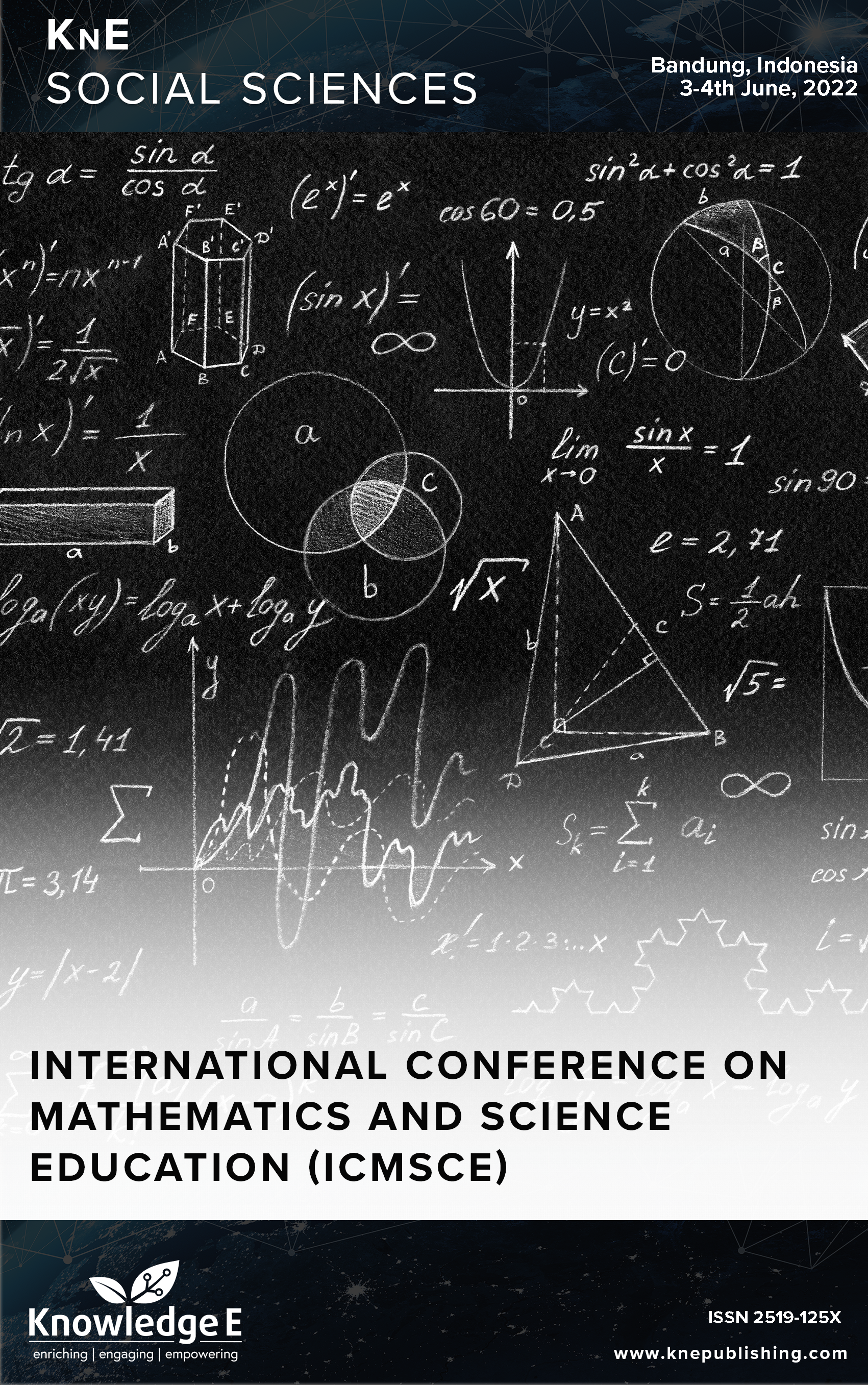Students' Perspectives on Innovation of Mathematics Learning Online Course on Their Ability to Develop Innovative Textbooks
DOI:
https://doi.org/10.18502/kss.v9i8.15610Abstract
The responsibility for developing professional and high-quality teacher candidates lies with the Education Institution for Educational Personnel (LPTK). However, achieving this goal is certainly challenging to achieve during this pandemic. This research explores student perspectives on the effectiveness of lectures in developing the ability to create innovative textbooks. The research employed quantitative descriptive methods and involved students from the mathematics education study program Universitas Negeri Semarang who were enrolled in the Innovation of Mathematics Learning course. The data were collected through questionnaires and analyzed using descriptive statistics. The results of the study indicate that preparing learning resources in modules is crucial during lectures. Additionally, activities such as synchronous lecture activities, use of Learning Management System (LMS), resources like videos, discussions with colleagues, virtual face-to-face, discussions using WhatsApp Group, presentation of each assignment, group assignments, and projects should be prepared during lectures. These results highlight the necessity of implementing a team-based project model to develop students’ abilities in developing innovative textbooks.
Keywords: innovative textbooks, mathematics learning online course, students’ perspectives.
References
Bahasoan AN. Wulan Ayuandiani, Muhammad Mukhram, and Aswar Rahmat, “Effectiveness of online learning in pandemic Covid-19.,” International Journal of Science. Technology & Management. 2020;1(2):100–6. DOI: https://doi.org/10.46729/ijstm.v1i2.30
Almarashdi H, Jarrah AM. Mathematics distance learning amid the COVID-19 Pandemic in the UAE: high school students’ perspectives. International Journal ofLearning, Teaching and Educational Research. 2021;20(1):292–307. DOI: https://doi.org/10.26803/ijlter.20.1.16
Ladyanna S. “Problems and challenges of online lectures in indonesia during the pandemic COVID-19.,” Presented at the (2021). https://doi.org/10.2991/assehr.k.210202.016. DOI: https://doi.org/10.2991/assehr.k.210202.016
A. Widodo and N. Nursaptini, “Problematika pembelajaran daring dalam perspektif mahasiswa.,” ELSE (Elementary School Education Journal) : Jurnal Pendidikan dan Pembelajaran Sekolah Dasar. vol. 4, no. 2, p. 100, 2020. https://doi.org/10.30651/else.v4i2.5340. DOI: https://doi.org/10.30651/else.v4i2.5340
Tekad T, Pebriana R. “Pengaruh model pembelajaran team-based project terhadap keterampilan komunikasi dan keterampilan kolaborasi pada mata kuliah Bahasa Indonesia.,” Jurnal PTK dan Pendidikan. vol. 7, no. 2, p. 2022. https://doi.org/10.18592/ptk.v7i2.5445. DOI: https://doi.org/10.18592/ptk.v7i2.5445
I. Chan, Y.-Y. Lau, W. Sze, and W. Lee, Adoption of Knowledge Creation Model in Team-based Project to Support Student Engagement., 2020.
Rahmawati R, Lestari F, Umam R. Analysis of the effectiveness of learning in the use of learning modules against student learning outcomes. Desimal: Jurnal Matematika. 2019;2(3):233–40. DOI: https://doi.org/10.24042/djm.v2i3.4557
Mulyadi R. Syahrul, Atmazaki, and Agustina, “The Development of e-modules based on adobe flash for indonesian subjects at IAIN Bukittinggi.,” In: Journal of Physics: Conference Series. pp. 012002 (2020). DOI: https://doi.org/10.1088/1742-6596/1471/1/012002
Laugerman MR, Saunders KP. Supporting student learning through instructional videos in business statistics. Decis Sci J Innovative Educ. 2019;17(4):387–404. DOI: https://doi.org/10.1111/dsji.12193
Luna-Lucero M, O’Donnell Oppenzato C, Uscianowski C, Almeda MV, Ginsburg HP. Ma.V. Almeda, and H.P. Ginsburg, “‘Magic math minute’ videos to foster understanding of early mathematics learning,”. Int J Des Learn. 2020;11(3):47–66. DOI: https://doi.org/10.14434/ijdl.v11i3.27128
Suchyadi Y, Karmila N. The application of assignment learning group methods through micro scale practicum to improve elementary school teacher study program college students’ skills and interests in following science study courses [ Journal of Humanities and Social Studies]. JHSS. 2019;3(2):95–8. DOI: https://doi.org/10.33751/jhss.v3i2.1466
Kooloos JG, Klaassen T, Vereijken M, Van Kuppeveld S, Bolhuis S, Vorstenbosch M. Collaborative group work: effects of group size and assignment structure on learning gain, student satisfaction and perceived participation. Med Teach. 2011;33(12):983–8. DOI: https://doi.org/10.3109/0142159X.2011.588733
Ngereja B, Hussein B, Andersen B. Does Project-Based Learning (PBL) promote student learning? a performance evaluation. Educ Sci (Basel). 2020;10(11):1–15. DOI: https://doi.org/10.3390/educsci10110330
Shin MH. Effects of project-based learning on students’ motivation and self-efficacy. Engl Teach. 2018;73(1):95–114. DOI: https://doi.org/10.15858/engtea.73.1.201803.95
M.M. Grant, “Learning, beliefs, and products: Students’ perspectives with projectbased learning,.” Interdisciplinary Journal of Problem-Based Learning. vol. 5, no. 2, p. 2011. https://doi.org/10.7771/1541-5015.1254. DOI: https://doi.org/10.7771/1541-5015.1254
Lee HJ, Lim C. Peer Evaluation in blended team project-based learning: what do students find important? J Educ Technol Soc. 2012;15(4):214–24.
Hartini S, Dewantara D, Mahtari S. Pengembangan alat peraga fisika energi melalui perkuliahan berbasis project based learning. Vidya Karya. 2018;33(1):42. DOI: https://doi.org/10.20527/jvk.v33i1.5393
Umam HI, Jiddiyyah SH. Pengaruh pembelajaran berbasis proyek terhadap keterampilan berpikir kreatif ilmiah sebagai salah satu keterampilan abad 21. Jurnal Basicedu. 2020;5(1):350–6. DOI: https://doi.org/10.31004/basicedu.v5i1.645

